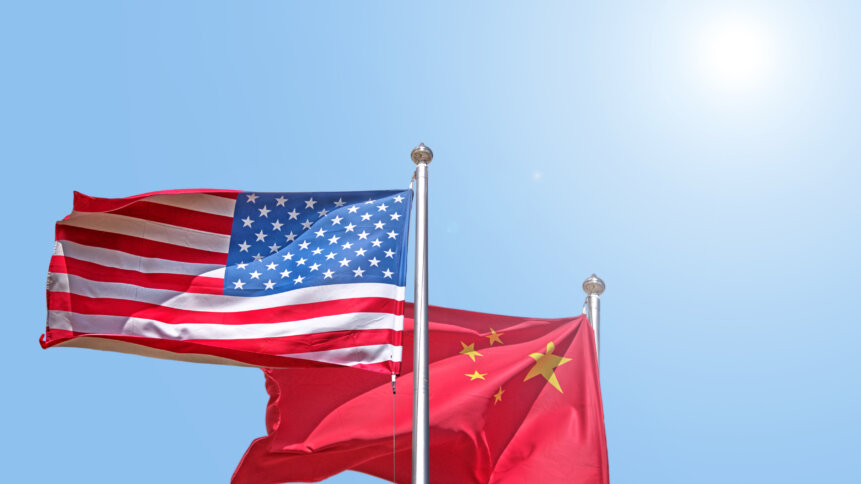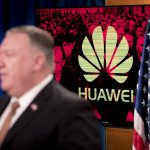Entity list: Chinese blacklisted firms are still obtaining goods and tech from the US

The US Entity List is a list of companies that the United States believes poses a national threat. It is published by the US Department of Commerce, and contains a list of “foreign persons” – which includes businesses, research institutions, governments and individuals – that are subject to license requirements for the export, re-export and transfer of certain items to the country.
The list has been around since the late 90s but it was made globally famous during the Trump administration. Escalating the bruising trade war with China, Trump in 2019 signed an executive order banning Huawei Technologies from buying parts and components from US companies without US government approval.
To date, the US Commerce Department, via its Bureau of Industry and Security (BIS) agency, has added over 639 China-based parties to the trade blacklist. Of the total, over 155 entities have been added during the Biden Administration alone. In a recent hearing by the House Foreign Affairs Committee, Chairman Michael McCaul released the aggregated licensing outcomes for companies based in China that are on the Entity List.
McCaul revealed that despite the red tape in place, the Biden administration managed to approve more than US$23 billion worth of licenses in the first quarter of 2022 alone. “The 192 licenses granted were out of 242 license applications decided between January and March 2022, a chart showed, and 115 of those approved contained controlled technology,” the statement reads.
To put it simply, around 69.9% of the applications received were approved, granting companies the rights to ship US goods and technology to those blacklisted Chinese companies. Approximately nineteen or 8% of the total number of applications were denied, and 31 were returned without action.
“We are currently in the middle of a struggle for the global balance of power – and the primary battleground is technology leadership. So, it is absolutely astounding BIS approved more than US$23 billion worth of licenses to sell US technology to blacklisted companies based in China,” he said, while grilling the US officials in charge for allowing the licenses to be approved.
“In total, only eight percent of licenses to these entity-listed companies were denied. It is well within BIS Under Secretary Estevez’s authority to update these licensing policies and start denying licenses,” McCaul added. The data was revealed amid growing pressure on the administration of Democratic President Joe Biden to further expand a broad crackdown on shipments of sensitive US technology to China from Republican lawmakers, who now control the House of Representatives.
McCaul called out the approvals as unacceptable. “This critical US technology is going to the Chinese Communist Party’s surveillance and military efforts,” he said. The Commerce Department’s BIS “must and can do more.” The Commerce Department, however, defended the decisions.
“Approvals of any licenses involving (China) are not loopholes in our controls,” Secretary of Commerce for Industry and Security Alan F. Estevez said. He added that “license applications for (China) had an average processing time of approximately 77 days, which was significantly longer than the average processing time of approximately 40 days for all cases.”
At the hearing, entitled “Combating the Generational Challenge of CCP Aggression,” Estevez also told lawmakers that China remains a huge focus of their enforcement efforts. “Every license reflected in this data – which primarily involves exports of low-technology and other items that do not pose significant national security concerns – was carefully reviewed,” BIS said in a later statement.
Is the Entity List counterproductive?
Interestingly, Huawei, one of the biggest victims of the US-China spat, was also on the receiving end of those approved licenses. Between November 2020 and April 2021, suppliers to the Chinese tech giant got 113 licenses worth US$61 billion. Then there’s Semiconductor Manufacturing International Corp (SMIC), the largest semiconductor foundry company in mainland China.
According to data from Reuters, SMIC had 188 licenses valued at nearly US$42 approved for the company. However, Commerce Department official Alan Estevez, who oversees US export policy, shared at the hearing last week that a Trump-era policy that allows Huawei to receive some US technology below the “5G level” is “under assessment.”
Huawei was added to the entity list by former Republican President Donald Trump in 2019, amid allegations of sanctions violations, spying capabilities, and intellectual property theft. Although suppliers of most companies added to the entity list see their requests to ship to the targeted firms denied, the Trump administration implemented a special policy for Huawei.
The policy requires suppliers to pledge that they would deny Huawei access to some things like 5G chips but allow it to receive other items, such as 4G chips. Estevez even brought up TikTok as a “threat,” noting that a powerful committee that reviews foreign investments in the United States was dealing with how to handle the popular Chinese-owned social media app.










